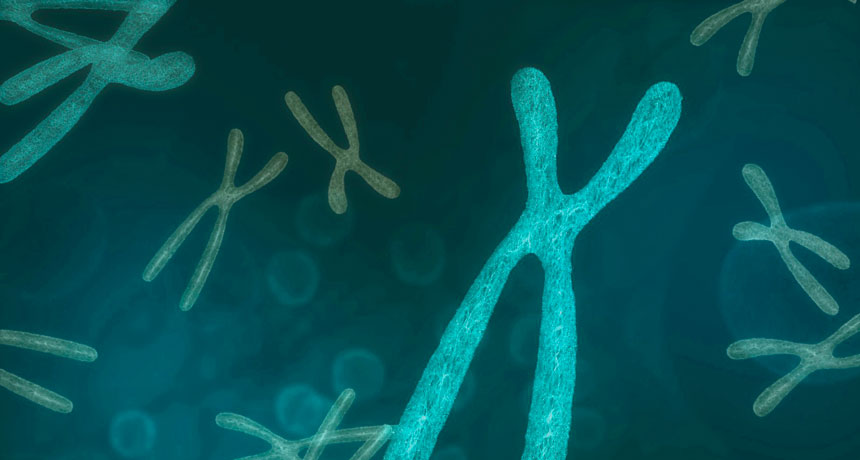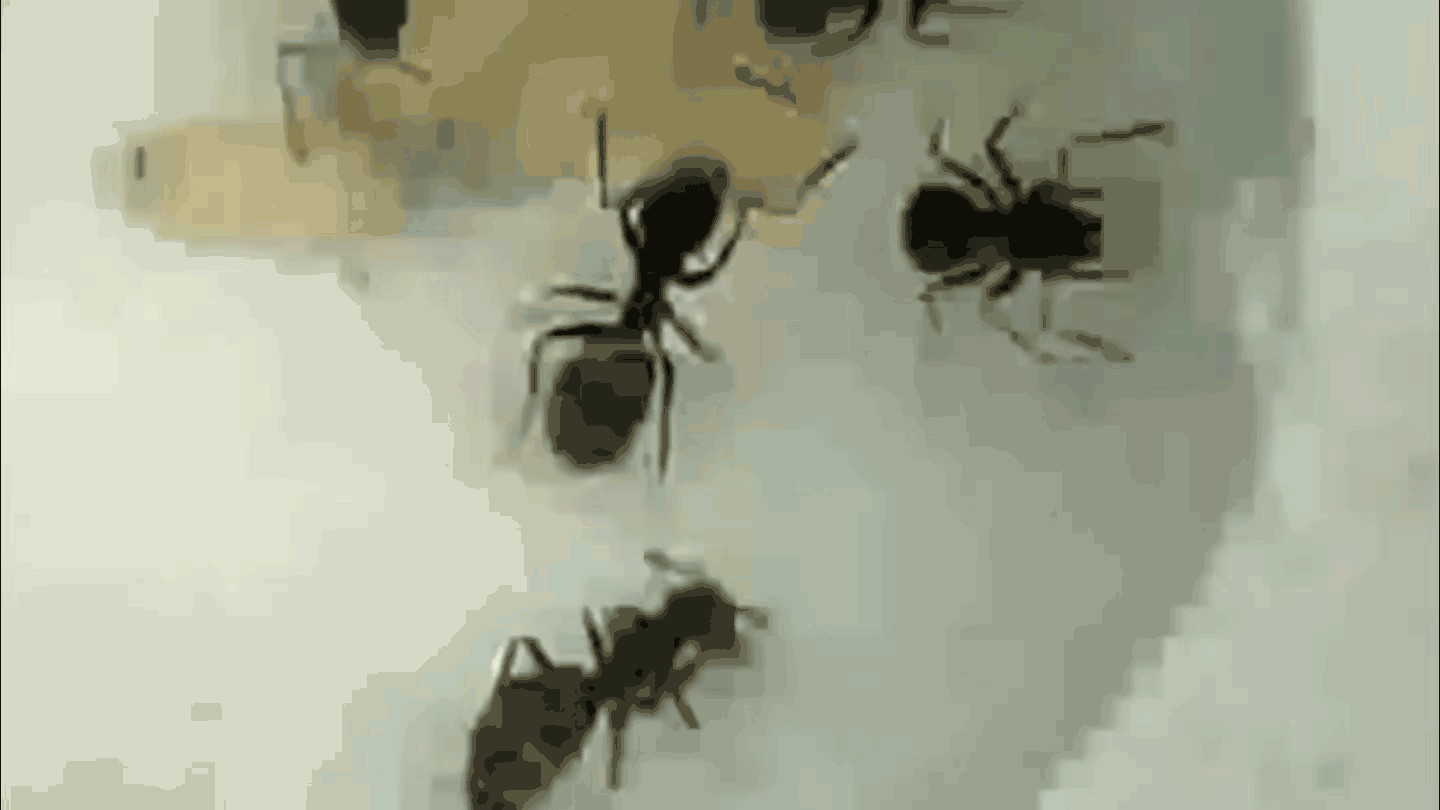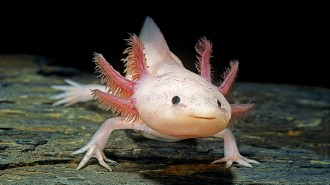Having an extra chromosome has a surprising effect on cancer
Smaller tumors, less cancer-driving proteins seen with trisomic cells

EXTRA EXTRA An extra chromosome can help suppress the effects of cancer mutations, new research suggests. The findings may help explain why people with Down syndrome, who have an extra copy of chromosome 21 in their cells, have low cancer rates.
Petrovich9 /istockphoto






